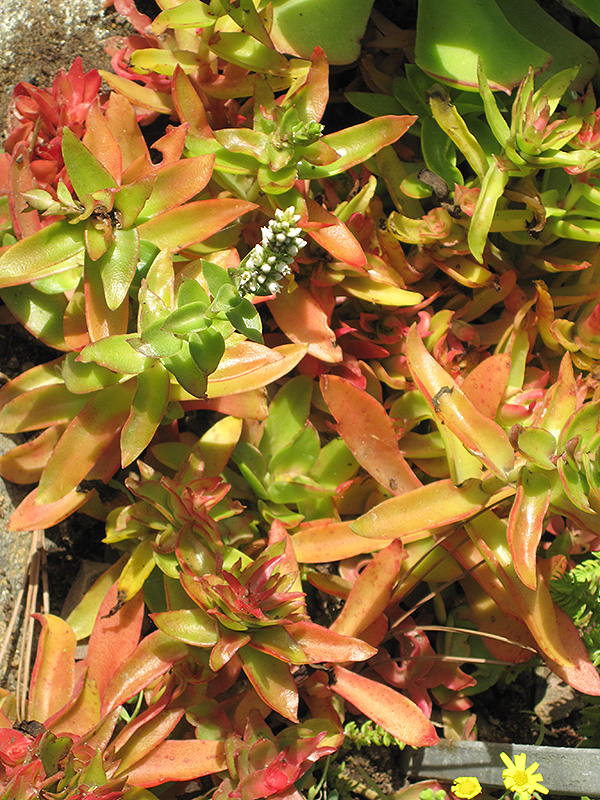Campfire Crassula
Crassula capitella 'Campfire'
Height: 8 inches
Spread: 3 feet
Sunlight:
![]()
![]()
Other Names: Crassula erosula, Blaze Crassula, Flame Crassula
Description:
A prostrate, spreading variety with attractive, narrow leaves in shades of red and salmon; very drought-tolerant and does well in poor soils; clusters of white flowers rest on the leaves in summer; an excellent choice for indoor containers
Features & Attributes
Campfire Crassula features showy clusters of white star-shaped flowers at the ends of the stems in mid summer. The flowers are excellent for cutting. Its attractive succulent narrow leaves emerge green, turning red in color with showy salmon variegation throughout the year.
This is an herbaceous evergreen houseplant with a spreading, ground-hugging habit of growth. You may trim off the flower heads after they fade and die to encourage releat blooming.
Planting & Growing
When grown indoors, Campfire Crassula can be expected to grow to be about 8 inches tall at maturity, with a spread of 3 feet. It grows at a slow rate, and under ideal conditions can be expected to live for approximately 15 years. This houseplant will do well in a location that gets either direct or indirect sunlight, although it will usually require a more brightly-lit environment than what artificial indoor lighting alone can provide. It prefers dry to average moisture levels with very well-drained soil, and may die if left in standing water for any length of time. This plant should be watered when the surface of the soil gets dry, and will need watering approximately once each week. Be aware that your particular watering schedule may vary depending on its location in the room, the pot size, plant size and other conditions; if in doubt, ask one of our experts in the store for advice. It is not particular as to soil pH, but grows best in poor soil. Contact the store for specific recommendations on pre-mixed potting soil for this plant. Be warned that parts of this plant are known to be toxic to humans and animals, so special care should be exercised if growing it around children and pets.
There are many factors that will affect the ultimate height, spread and overall performance of a plant when grown indoors; among them, the size of the pot it's growing in, the amount of light it receives, watering frequency, the pruning regimen and repotting schedule. Use the information described here as a guideline only; individual performance can and will vary. Please contact the store to speak with one of our experts if you are interested in further details concerning recommendations on pot size, watering, pruning, repotting, etc.
-- THIS IS A HOUSEPLANT AND IS NOT MEANT TO SURVIVE THE WINTER OUTDOORS IN OUR CLIMATE --

